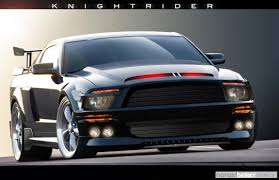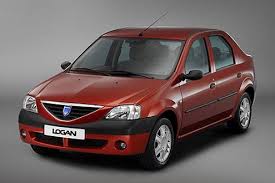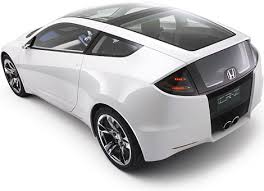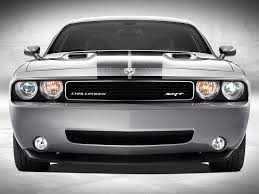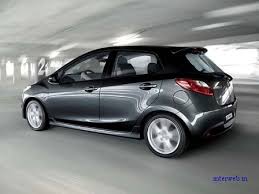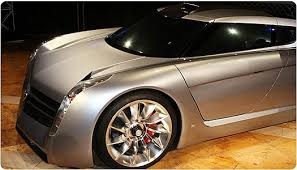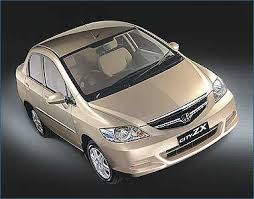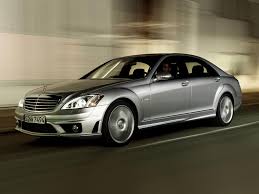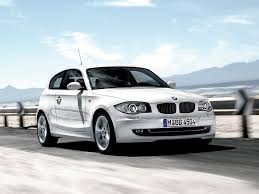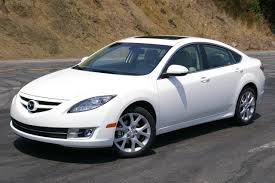skip to main |
skip to sidebar
 Rolling down your vehicle window to get a breath of fresh air may be unnecessary in your next Nissan. The Japanese automaker just announced the development of its new "Forest AC" air conditioning system, an automotive climate control setup designed to control humidity, aroma, and other ambient factors in addition to the temperature and air cleaning features found with current systems. According to Nissan, the Forest AC is the first automotive system in the world created to make driving more comfortable based on the driver's mental activity. The development of the optimal artificial atmosphere for driving was based on Nissan's studies of how surroundings influence the physiological state and senses of test subjects.
Rolling down your vehicle window to get a breath of fresh air may be unnecessary in your next Nissan. The Japanese automaker just announced the development of its new "Forest AC" air conditioning system, an automotive climate control setup designed to control humidity, aroma, and other ambient factors in addition to the temperature and air cleaning features found with current systems. According to Nissan, the Forest AC is the first automotive system in the world created to make driving more comfortable based on the driver's mental activity. The development of the optimal artificial atmosphere for driving was based on Nissan's studies of how surroundings influence the physiological state and senses of test subjects.
Researchers found that when humans were exposed to certain aromas (e.g., fragrant wood and leaves) combined with ventilation simulating natural breezes, they were alert and focused yet free from unnecessary tension. While there is no word if the scent of freshly baked waffle cones has the same effect, Nissan says we'll see Forest AC on the new Fuga scheduled to debut in Tokyo later this year.
 For the last century, automotive engineers have worked diligently to send Charles Darwin's concept of natural selection into obsolescence. It appears that we're inching closer to the time when any fool with a pulse may be able to climb behind the wheel of car and traverse a series of curves looking much more like the white-helmeted mystery driver from Top Gear than Captain Slow. The new Nissan Fuga (known here as the Infiniti M), debuting this fall at the Tokyo Motor Show, will feature fresh technology including new driver assistance systems.
For the last century, automotive engineers have worked diligently to send Charles Darwin's concept of natural selection into obsolescence. It appears that we're inching closer to the time when any fool with a pulse may be able to climb behind the wheel of car and traverse a series of curves looking much more like the white-helmeted mystery driver from Top Gear than Captain Slow. The new Nissan Fuga (known here as the Infiniti M), debuting this fall at the Tokyo Motor Show, will feature fresh technology including new driver assistance systems.
In this case, Infiniti has integrated the GPS navigation system (hope those satellites hang in there) with the M's electronic stability control. As always, ESC uses inertial sensors to detect what the car is actually doing and compares that information to the actual driver inputs to see if they match. If not (i.e. understeer or oversteer) the brakes are individually applied at each wheel and engine torque may be reduced to help make the car go where the driver intended.
The GPS integration allows the system to detect where the road is going ahead and further manipulate the car, while alerting the driver to slow down by pushing the throttle back against his or her footn. Maybe it's all just a part of Nissan's master plan to save trees by preventing cars from being wrapped around them. Or perhaps we're just seeing the evolution of the Idiocracy.




 The Balrog is an aggressive and punchy wide bodykit with a touch of elegance. After 8 months of research to give to his customers the best quality, Jeremie Paret is proud to introduce it to the world. The Balrog includes a front bumper with genuine Cayenne Turbo side lights and fog lights with angel eyes. This bumper improves the cooling of all intercoolers of the Cayenne, and the cooling of the front brakes. Moreover, the drilled luxury grill offers an innovative design in automotive styling. Of course, all Porsche options, like the xenon nozzles or the parking detectors, can be mounted on the Balrog bodykit. The wide fenders allow the Balrog to fit very large wheels for an improved handling and an uncompromised style with big lips. At the rear of the car, the spoiler and its diffuser give you more aerodynamic pressure. The diffuser can be removed in only a few minutes to let you install your tow hook. At last, the side skirts finish to give to the Balrog its so different and eye-catching look.Of course, this bodykit can easily take place in Paret’s individual program and be completed by a custom interior, an engine tuning, new wheels, etc.
The Balrog is an aggressive and punchy wide bodykit with a touch of elegance. After 8 months of research to give to his customers the best quality, Jeremie Paret is proud to introduce it to the world. The Balrog includes a front bumper with genuine Cayenne Turbo side lights and fog lights with angel eyes. This bumper improves the cooling of all intercoolers of the Cayenne, and the cooling of the front brakes. Moreover, the drilled luxury grill offers an innovative design in automotive styling. Of course, all Porsche options, like the xenon nozzles or the parking detectors, can be mounted on the Balrog bodykit. The wide fenders allow the Balrog to fit very large wheels for an improved handling and an uncompromised style with big lips. At the rear of the car, the spoiler and its diffuser give you more aerodynamic pressure. The diffuser can be removed in only a few minutes to let you install your tow hook. At last, the side skirts finish to give to the Balrog its so different and eye-catching look.Of course, this bodykit can easily take place in Paret’s individual program and be completed by a custom interior, an engine tuning, new wheels, etc.







